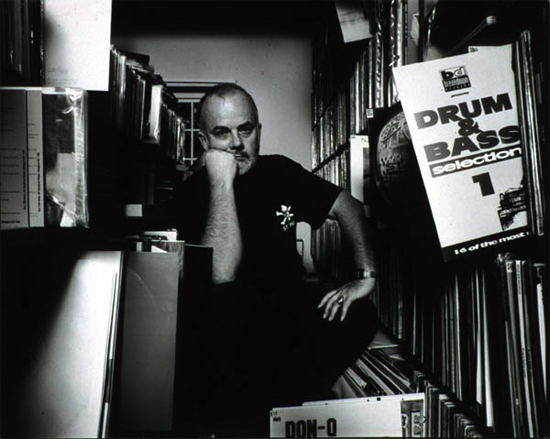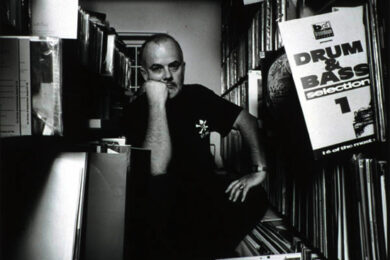THE FALL
Martin Bramah: Peel’s producer, John Walters, came to see Siouxsie and the Banshees at the Greyhound in London and saw us supporting. I believe he said something like ‘You don’t know me but I know you,’ and invited us in to do a session for the programme.
We found a guy to drive us – the deal was that if he got us to London we’d let him play his congas on the session. Eric, our bass player, saw the congas and this guy in a Hawaiian shirt and said "Fuck this. If he’s playing on the session I’m not. I’m not getting in the van."
I had to visit our first bass player, Tony Friel, and ask "Er, can I borrow your bass? We’ve got a John Peel session." We couldn’t ask Tony to play because he’d fallen out with Mark [E. Smith]. But he hadn’t fallen out with me so lent me the bass.
I was a guitarist, not a bass player, so stripped it down to root notes and played very aggressively – the Fall bass sound was established there. At the time, the Fall were doing a lot of LSD and magic mushrooms, but we didn’t take them in the BBC. Those first two sessions we did brought us national attention.
Years later, we met John when we played his birthday party. By this time, the Fall were famously his favourite band, but he’d already been hurt by his experiences with David Bowie and Marc Bolan and other people he’d championed and become mates with. So he didn’t want to know Mark E. Smith. He wanted to admire him from afar, and Mark was smart enough to know that.
If you listen to ‘Rebellious Jukebox’, the congas are on there – very low in the mix.
PULP
Russell Senior: Peel had a very early session when Pulp were a comedy band, but he didn’t have us on again for over ten years, by which time we’d got gold discs. We’d dutifully sent our tapes in for ten years, but where your mate on Twisted Aardvark Records could get on, we never did. It puzzled us because we were an archetypal Peel band. But in a way he was right. We were trying to be a pop band. We wanted to be on Top of the Pops.
We met him when the Fall supported us. He said, ‘I can’t believe I’ve not had you guys on’, and got us in again. We didn’t need the exposure, but did it because it was him. The BBC Maida Vale studio had big bakelite buttons and looked like a Dr. Who set. But the studio engineer dressed casually. He said, "Did you expect me to wear a dickie bow?"
We first recorded ‘Common People’ for a Peel session, when it was a sub-Stereolab ramble which was later turned into a pop song. You could experiment on Peel. Wire once improvised for 20 minutes.
His radio persona was patently not an act. It felt like meeting somebody familiar, and that’s part of the reason he got good performances. You weren’t hyped up. It felt cosy and informal. If you made a mistake it wasn’t the end of the world. He’d play worse music than you!
He was a national treasure; even when he didn’t play us we still loved him. After I’d left Pulp I heard Peel on the radio being asked about his favourite concert ever. This guy’s seen Otis Redding and Jimi Hendrix, but he said his favourite was Pulp at Glastonbury in 1995. That was the most important accolade we ever had.
THE GROUNDHOGS
Tony McPhee: In the 1960s, Radio One on a Sunday afternoon meant the Peel show. Even then he was playing all sorts of music nobody else would.
Being played on his show was a major leg up. In 1970 he played our track Soldier, because he liked the fact that I say "you know" after each line in the lyrics. I stole that from the Beatles, but after that, the track hit the charts within a month. Then our next album, Split, became the fifth best selling of 1971. After years of gigging we were suddenly being offered all these tours, like with the Rolling Stones, because Mick Jagger liked us.
We recorded four sessions for John’s programme. The producers didn’t like us, but John did. The first session was recorded live in the Paris Cinema on Regent Street. When we recorded at Maida Vale they only had a two track recording machine, but the BBC engineers were so good that some bands used their Peel tracks on their own albums.
I got quite friendly with John. When he lived in Stowmarket in East Anglia I phoned him up a couple of times looking for drummers. He’d say ‘Do you play country and western? Otherwise there’s no drummers round here.’ He lent us money to get our first PA. He’d been aware of us from our very first record, and followed our progress from blues to hard rock.
The last time I saw him was on the Tube. He said he’d almost given up on bands during the glam era, but that punk had made him excited again. John was the most important person to the Groundhogs’ career. We’re still touring – if he’d never played us, I might be working on the telephones.
ORBITAL
Paul Hartnoll: I listened to John Peel when I was young enough to still have a daylight bedtime, on a little transistor radio next to my bed. He was my musical teacher. I remember being creeped out by Laurie Anderson’s ‘O Superman’, which he championed and it became a Number Two. Who else would do that? I heard ‘Blue Monday’ by New Order and thought it was brilliant, this machine-like der-der-der-der-duh.
When he played Kid Frost’s Rough Cut he introduced us to electro. Those moments challenged my preconceptions of what music could do.
One night I was driving and suddenly heard "Here’s ‘Chime’ by Orbital", in that voice. Oh my God! John Peel played our record. We’ve arrived!
When we played Glastonbury he was broadcasting from there in a portacabin and I went up to the window with a cassette promo of our Snivilisation album, and he waved a cassette back at me. Naturally, he already had it. Two minutes after that we were jumping up and down outside to ‘Quality Seconds’. He’d played the one and a half minute punk song every one else hated on the album.
There’s a John Peel sized hole in my life, cos if he was still alive I’d still be looking to him now. You bothered to listen because he had something for you to listen to.
We met him a few times. He was a very humble man and found praise too emotional. If you said "You’re responsible for what I do," he’d end up with a tear in his eye.
When we were splitting up, we did our last ever performance as a Peel broadcast live from Maida Vale. That was emotional. He stood next to us while we were playing. He was always interested. He had a tear in his eye then, too.
THE DELGADOS
Emma Pollock: When we started the Delgados we sent our first single to John Peel and listened to his show every night for two weeks. Then suddenly it was on. Hearing your song on the radio felt like stepping into another universe.
We did a session for Radio Scotland, and Peel picked it up for his show. We were sitting in a car listening, and with each song John was getting more excited. You’re sat thinking ‘Is this real?’ After that we did lots of Peel sessions. He brought us to a national audience and a Mercury nomination – he gave bands belief that if the music’s good enough, you’ll get played.
He was independent of influence and you’d try and work out why no other DJ came up to his mark. He was completely anonymous in the way he presented, and very quick-witted although sometimes hilariously slow with other aspects of programming, like playing records at the wrong speed. He was the funniest but most genuine and generous man.
We played at his wife Sheila’s – "the Pig"’s – birthday, and there was a pig shaped firework display in the back garden. He had to pick someone up and took me for a run in one of his old classic cars, a Cadillac, and I had to pinch myself. It was one of those half hours in your life where you think "This will never happen again."
When he made a programme called The Sound of the Suburbs he came to the Electric Bar in Motherwell. He joined in with the pub quiz, and John was rotten. I think he didn’t properly identify a Jimi Hendrix track. It was hilarious, but he spent the whole night fielding people saying, "John, your programme saved my life."
Martin Bramah’s Blue Orchids and Emma Pollock appear with the likes of The Primitives, Nic Jones and The Monochrome Set at the Un-Peeled series of gigs in Preston from October 12 to 27. Details of these and all activities relating to John Peel Day on October 25 can be found here and here



